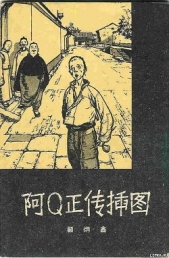Candy (chinese)

Candy (chinese) читать книгу онлайн
An international literary phenomenon-now available for the first time in English translation-Candy is a hip, harrowing tale of risk and desire, the story of a young Chinese woman forging a life for herself in a world seemingly devoid of guidelines. Hong, who narrates the novel, and whose life in many ways parallels the author''s own, drops out of high school and runs away at age 17 to the frontier city of Shenzen. As Hong navigates the temptations of the city, she quickly falls in love with a young musician and together they dive into a cruel netherworld of alcohol, drugs, and excess, a life that fails to satisfy Hong''s craving for an authentic self, and for a love that will define her. This startling and subversive novel is a blast of sex, drugs, and rock ''n'' roll that opens up to us a modern China we''ve never seen before. – Banned in China -with Mian Mian labeled the ''poster child for spiritual pollution''-CANDY still managed to sell 60,000 copies, as well as countless additional copies in pirated editions. – CANDY has been published in eight countries to date and has become a bestseller in France.
***
Sex, drugs, and rock 'n roll: ingredients for novels about modern China? Yes, SHANGHAI BABY by Wei Hui (Pocket Books, 2001) showed international readers modern Chinese youth were not immune to the running dogs of Western decadence: Globalization might even include mixing with dissolute foreigners. Following SHANGHAI BABY to English by a few years, Mian Mian now suggests with CANDY the decadence is more likely homegrown, possibly an inevitable side-effect of China's ascension to manufacturing colossus for the world. After this first novel by Shanghainese Mian was banned in China -an "honor" Wei Hui also earned – she was labelled a "poster child for spiritual pollution."
The buzz made CANDY an underground bestseller.
Whether Mian Mian harvested autobiographical details for her protagonist Hong's drug-plagued odyssey is open to question. She prefaces the novel with a note: "This book exists because one morning as the sun was coming up I told myself that I had to swallow up all of the fear and garbage around me, and once it was inside me I had to transform it all into candy. Because I know you all will be able to love me for it."
In a larger context, Hong's story, the characters in her life, often resonate with American stories we've heard of the Old West and Gold Rush days (whether in California or Alaska). She leaves Shanghai to seek her future in the new frontier of the Special Economic Zones the Chinese government created along the south coast in the 1980s, near Guangzhou. Not only did the SEZs permit a laissez faire approach to business-much of the Confucian social rules that apply elsewhere are ignored. In the SEZ thick with fortune seekers and finders, prostitution flourishes, as does alcohol and drug addiction.
Hong, only 17, has dropped out of a competitive high school, somewhat dispirited by the suicide of a classmate (an echo of Murakami's NORWEGIAN WOOD), when she leaves for the south. There she meets a young musician Saining and they become lovers, so often hopeless for each other and so often hopeless for their addictions. They survive, slacker-style, largely by the generosity of Saining's mom, who lives in Japan.
Hong's love for Saining has compelling moments of violence, promiscuity, and druggy indifference. But the greatest achievement of Hong's story, perhaps, is the honest testimony to the erasure of desire, the great sucking away of soul only addiction can wreak on a love that nonetheless won't go away. From a null point, from a Murakami-esque death in life, Hong goes on to find redemption can be hers.This stark portrait is not without lighter moments. For example, Hong's friend Bug is convinced he has AIDS. The horror of that discovery is brought alive. Page after page: consultation with friends, plans to leave the country, examination by a Beijing AIDS specialist. Finally, the revelation too many OTC drugs to get high had caused the troubling symptoms.
Like Murakami's post-consumerist young generation in Japan, Mian Mian suggests the same search for individual authenticity is underway in China. As China 's economic engine gains force, so does disillusionment among the young with the old ways. Hong suggests her ambivalence towards China 's rising star: "The moment the plane left the ground, I fucking burst into tears. I swore I would never come back to this town in the South again. This weird, plastic, bullshit Special Economic Zone, with all that pain and sadness, and the face of love, and the whole totally fucked-up world of heroin, and the late 1980s gold rush mentality, and all that pop music from Taiwan and Hong Kong. This place had all of the best and all of the worst. It had become my eternal nightmare." Hong awakes before the CANDY is gone. Mian's compassion for youth of New China elevates and brings irony to a story lesser writers might have passed off as sensation-ridden heroin chic.
Внимание! Книга может содержать контент только для совершеннолетних. Для несовершеннолетних чтение данного контента СТРОГО ЗАПРЕЩЕНО! Если в книге присутствует наличие пропаганды ЛГБТ и другого, запрещенного контента - просьба написать на почту [email protected] для удаления материала
他说这很重要吗?我想不起来我什么时候说过这话,我想可能是那天我想起我忘记了妈妈的生日,我觉着自己是个坏人,我想找人倾诉,而你正好打电话过来。回
春游还是蛮开心的。现在我听耳机。
电子乐的创作是选择两点确定一直线的过程,任何与第三点或三点以外有关的意图和联接都是无需考虑的,生成怎样的多边形和平面都是听者的工作,与创作者无关。
我是钮扣,我是一名DJ,头说我是黑夜的领袖,头说我和别的孩子不一样。
我是吃超市食品长大的孩子,因为妈妈工作,爸爸不和我们在一起。我以前只相信妈妈,因为我是吃玻璃长大的孩子。现在除了妈妈,我还相信妖怪,因为她也是吃玻璃长大的孩子,我还相信头,因为她吃过的玻璃比我多。
我搞不懂头,但是我相信她。我不知道头这次的生日过得是否快乐。因为这以后的事有点奇怪。
从南京回来的路上头说她要搬出拉丁的家,她说她觉得自己的生活是可怜的,迷糊的。她说她不要爱上一个人,她也不要没有爱的生活,然后她对我说记住,不要随便和男人上床,这种游戏我们玩不起。当天晚上,头突然带我去了几个上海的迪斯科。那里所有的人都在随着音乐摇晃着他们的头,他们面无表情,浑身上下除了脖子在动,什么都不动,连眼珠子都不动一下,完全没有灵魂的样子,所有的人都一样。
头说小钮扣,这才是真正的中国跳舞文化,想想办法吧,我完全不明白他们是怎么回事,我害怕。我说你害怕是因为你在乎他们,他们在这里是鬼,这里是地狱。头说他什1不是鬼,他们和我们一样。这个城市在塑造你的同时,也塑造了他们。他们看上去如此空洞,但是我不了解他们,我似乎没有权利这样认为。可我不敢去了解他们,我害怕。我说我们是好孩子,他们是坏孩子。头说所有的孩子都是好孩子,而我们是幸运的好孩子。我说我是没办法改变这些的,如果我来放音乐,他们一样也会这样摇。他们只是认为这样时髦,其实他们并不那么可怕。
头生日的第二天晚上,十分虚弱和苍白,我甚至可以感觉到她一直在发抖,可是她不愿离开那些在我看来十分无聊的地方,她说她觉得自己的生活很可怜,总是和老外在一起,去老外最多的酒吧,因为那些酒吧可以让她放松,但作为一个作家似乎更应该来这种地方。这种地方更真实。我不清楚她这么说是因为责任感,还是因为个人欲望。我搞不懂。我只关心自己喜欢的事物,我和头不一样。而且我觉得去酒吧本来就不是为了真实,酒吧文化就是你可以把自己的想法全部强加给它。你认为它是什么, 它就可以是什么。这就像和男人的关系。





















